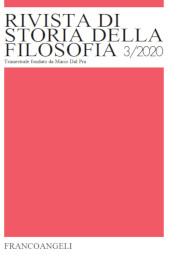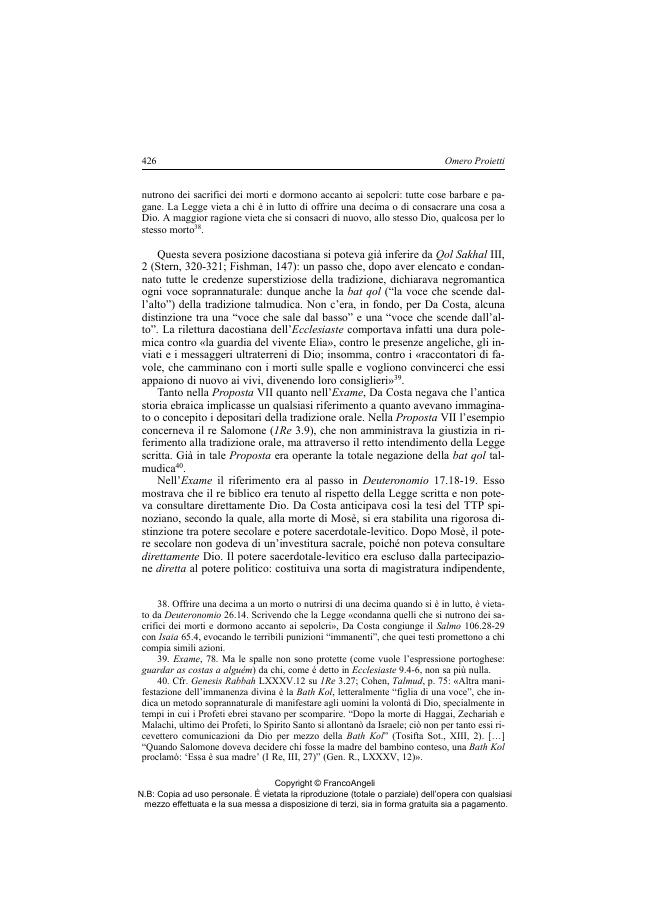Uriel da Costa e la polemica anticaraita di Yehudah ha-Lewi
409-442 p.
Uriel da Costa and Judah Halevi's Anti-Karaite Polemics. A deep-seated identity of concepts, viewpoints and phrasings unifies the critique to rabbinic Judaism that Da Costa initially advanced in his Tres Tratados contra a Tradicao and then resumed in the Exame das tradicoes phariseas. Of the Tratados, which was composed between 1618 and 1622, we have the Hebrew translation by Leon of Modena entitled Qol sakhal. The Exame was published in Portuguese in 1624. A unitary consideration of the positions expressed in the Qol sakhal and the Exame allows us to overcome the prejudice that the Qol sakhal was the work of an author who was more learned and discerning than Da Costa, and better informed about the Talmudic, Karaite, Sadducean and Samaritan halakha. In fact, the opposite is rather the case.
Not only was Da Costa well acquainted with the Pharisean halakha; he also had a solid knowledge of the Sadducean, Karaite and Samaritan varieties of halakha. Once this vast corpus of knowledge is assessed, we understand that Da Costa's return to the Torah is not connected to any of these differing and contrasting exegetic traditions. Furthermore, this reappraisal allows us to reconstruct in an analytical fashion the way in which the Sephardi Da Costa quoted, discussed and contested the polemical loci against the Karaites of Spain that the Sephardi Judah Halevi had raised in countless sections of his Kuzari. [Publisher's text].
Fait partie de
Rivista di storia della filosofia : LXXV, 3, 2020-
Articles du même numéro (disponibles individuellement)
-
Informations
Code DOI : 10.3280/SF2020-003003
ISSN: 1972-5558
DISCIPLINES
KEYWORDS
- Uriel da Costa, Yehudah ha-Lewi, Karaites of Spain, Torah, Talmud



